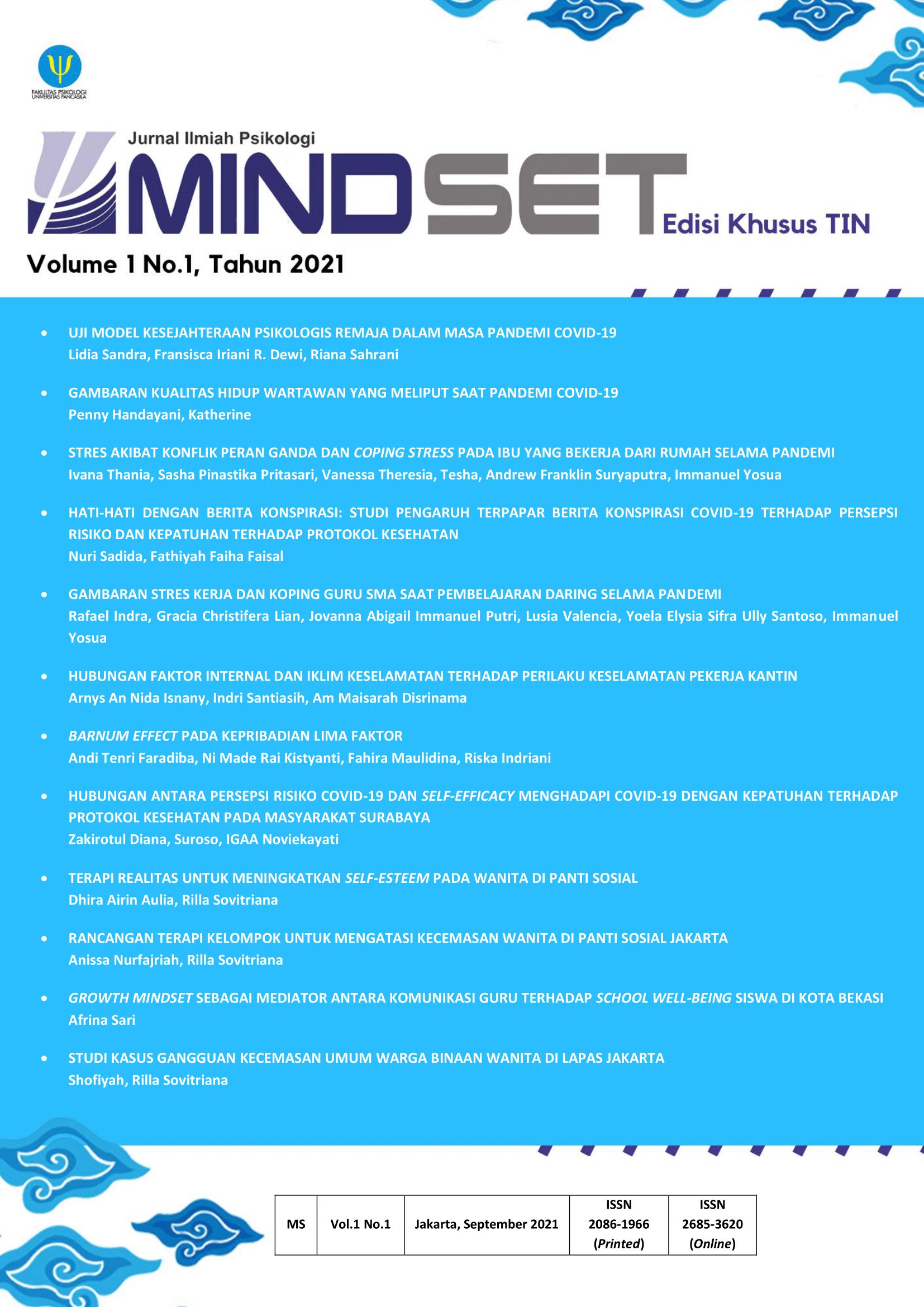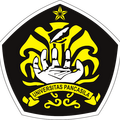Uji Model Kesejahteraan Psikologis Remaja dalam Masa Pandemi COVID-19
Abstract views: 578 | PDF (Bahasa Indonesia) downloads: 564
Abstract
The Coronavirus Disease 2019 (COVID‑19) has forced the world to come into a halt. Houses have been board up, cultures and the normality of humans as social beings have been overhauled. The model of psychological wellbeing of teenagers during this pandemic is the main discussion of this research. This study was done using the sequential mixed method. The three phases of this research attempts to answer the following questions: “How are the seven variables (Self Efficacy (SE), Emotional Intelligence (EI), Peer Attachment (PA), Social Support (SS), Meaning of Life (ML), Resilience (R)c and Psychological Wellbeing (PW)) that affect the psychological wellbeing of teenagers during the COVID-19 pandemic related?”, “What are the qualitative findings related to the types of psychological disorders that teenagers have experienced during the COVID-19 pandemic?” Quantitative data gathering was done using the likert scale, while qualitative data collection was done through interviews. This research involved 849 respondents during the first phase and 17 interviewees on the second phase. All participants are teenagers with age range 12-17 years old. The first phase of the study has shown that the SEM model fit test showed that the structural model tested in this study was stated or fit with an RMSEA value of 0.012. The results of hypothesis testing to see the significance of the relationship between variables were carried out by t-test with p values of 0.05 and 0.10. There are 25 hypotheses accepted, meaning that there is a significant effect of the independent variable on the dependent variable. Meanwhile, two hypotheses, H4 and H14 are rejected, i.e. emotional intelligence and meaning of life show no significant effect on psychological well-being among teenagers during the Covid-19 Pandemic. In the second phase, it was found that the type of psychological disorder(s) experienced by teenagers during the pandemic include: anxiety, mood swings and obsessive compulsive disorder.
References
Bastaman, H. D. (2007). Logoterapi: Psikologi untuk Menemukan Makna Hidup dan Meraih Hidup Bermakna. Jakarta: Rajawali Pers.
Dragun, R., Vecek, N. N., Maredic, M., Pribisalic, A., Divic, G., Cena, H., Polasek, O., & Kolcic, I. (2021). Have lifestyle habits and psychological well-being changed among adolescents and medical students due to COVID-19 lockdown in Croatia? Nutrients, 19(97), 1-18. https://doi.org/10.3390/nu13010097
Kumar, R. (1999). Research methodology. SAGE Publications.
Malhotra, N. (2007). Marketing research: An Applied Orientation (5th ed.). Pearson Education Limited.
Mustikasari, D. (2019). Hubungan efikasi diri dengan kesejahteraan psiokologis remaja yang tinggal di panti asuhan. Surakarta: Universitas Muhammadiyah Surakarta.
Puspitasari, P. (2020). Pengaruh Kelekatan Terhadap Kesejahteraan Psikologis Yang Dimediasi Oleh Resiliensi Pada Remaja Dengan Orang Tua Bercerai Di Kota Bandung. Bandung: Universitas Pendidikan Indonesia.
Soputan, S. D. M., & Mulawarman, M. (2021). Studi kesejahteraan psikologis pada masa pandemi COVID-19. COUNSENESIA Indonesian Journal of Guidance and Counseling, 2(1). 41-51.
Spector, P. E. (1992). Summated Rating Scale Construction An Introduction. CA Sage.
Sugiyono. (2013). Metode penelitian pendidikan pendekatan kuantitatif, kualitatif, dan R&D. Alfabeta.
Wang, G., Zhang, Y., Zhao, J., Zhang, J., & Jiang, F. (2020). Mitigate the effects of home confinement on children during the COVID-19 outbreak. The Lancet, 395(10228), 945-947. https://doi.org/10.1016/S0140-6736(20)30547-X.
Wiguna, T., Anindyajati, G., Kaligis, F., Ismail, R. I., Minayati, K., Hanafi, E., & Pradana, K. (2020). Brief research report on adolescent mental well-being and school closures during the COVID-19 Pandemic in Indonesia. Frontiers in Psychiatry, 11, 1157. https://doi.org/10.3389/fpsyt.2020.598756
WHO. The Global Strategy for women’s, Children’s, and Adolescents’ Health (2016-30). (2015). Available online at:http://www.who.int/lifecourse/partners/global-strategy/ewec-globalstrategyreport-200915.pdf?ua=1 (accessed September 7, 2020).









